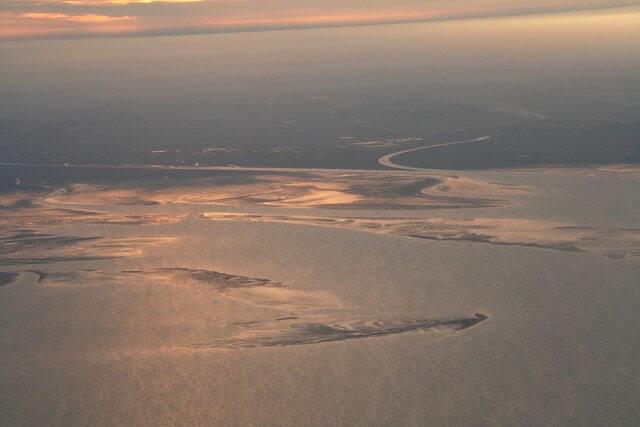
Conservation groups have expressed their apprehensions regarding the proposed tidal barrier across The Wash, situated between Norfolk and Lincolnshire. They warn that such a project could result in “catastrophic damage” to the area’s natural environment.
The company responsible for the proposal, Centre Port LTD, argues that an 11-mile long barrage connecting Gibraltar Point and Hunstanton would safeguard the low-lying Fenlands from future flooding. They also claim that it would create a new transportation link between the two counties, bringing in millions of pounds for the local economy. Additionally, a deep-sea container port would be constructed midway along the barrage, serving as a connection point for shipping in the North Sea, with an estimated cost of £2 billion.
Centre Port asserts that the project would contribute to the environment by generating low-carbon tidal energy and protecting The Wash’s natural areas for wildlife that would otherwise be lost due to climate change within two generations.
However, a coalition of environmental and wildlife organisations disagrees and argues that the scheme would cause irreparable harm to The Wash’s unique habitat. Norfolk Wildlife Trust, Wildfowl & Wetlands Trust, RSPB, and Wild Ken Hill are among the groups that have raised concerns.
Experts fear that a disruption in the tides from the North Sea could transform The Wash into a “green, fetid lake.” Moreover, they have expressed worries about the carbon emissions resulting from the construction process, which would further contribute to climate change and increase the risk of flooding.
There are also concerns for the fishing industry in Boston and King’s Lynn, which currently contributes £3.5 million annually to the local economy. The potential impact on the fishing sector adds to the list of considerations surrounding the proposed tidal barrier.
The conflicting viewpoints highlight the ongoing debate over balancing the need for flood protection and economic development with the preservation of delicate ecosystems and the livelihoods of local communities. Further discussions and assessments will be necessary to evaluate the potential risks and benefits associated with the tidal barrier proposal across The Wash.
Gareth Dalglish, Norfolk Wildlife Trust’s Nature Recovery Director, said: “The obvious lack of concern for this delicate wild landscape, and its importance on a local, national and global scale for people and wildlife is deeply concerning.
“This scheme would destroy vast swathes of saltmarsh – a crucial habitat supporting wildlife, commercial fish stocks and a vital carbon store that helps combat climate change.
“And it won’t just reduce carbon storage – it will exacerbate the issue due to significant carbon emissions linked to the development and management of the barrage and its associated infrastructure.
“The sediments which accumulate in The Wash store 11,000 tonnes of carbon every year; if a barrage is built, this sediment supply into The Wash from the North Sea will be stopped.
“There are far better ways to deal with climate change and the threat of sea level rise affecting communities than trashing the environment with a huge development.”
Steve Rowland, RSPB Area Manager, said: “A tidal barrage would impede the flow of water from the five rivers that drain into The Wash and the tides that cover it every day.”
“In doing so the development would destroy our most important site for wildlife in England and introduce potentially life-threatening flood risks to communities living upstream of the many rivers that currently flow into The Wash and along the coastline.”
——————————————————————————
At Natural World Fund, we are passionate about stopping the decline in our wildlife.
The declines in our wildlife is shocking and frightening. Without much more support, many of the animals we know and love will continue in their declines towards extinction.
When you help to restore a patch of degraded land through rewilding to forests, meadows, or wetlands, you have a massive impact on the biodiversity at a local level. You give animals a home and food that they otherwise would not have had, and it has a positive snowball effect for the food chain.
We are convinced that this is much better for the UK than growing lots of fast-growing coniferous trees, solely to remove carbon, that don’t actually help our animals to thrive.
This is why we stand for restoring nature in the UK through responsible rewilding. For us, it is the right thing to do. Let’s do what’s right for nature!
Support our work today at https://naturalworldfund.com/ and join in the solution!

